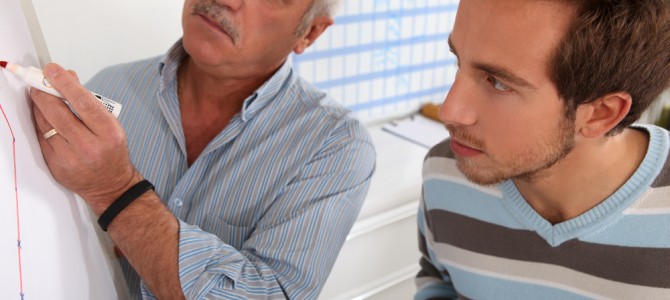
Last week, Madison Peace wrote a welcome article on embracing adulthood. She argued that young adults need to allow and encourage each other to become adults so that when they do enter a career, get married, and perhaps have a family, then responsible adulthood is not some radical life change that upends their worlds.
Madison is correct: we as a culture need to redefine the milestones for adulthood. The old ones have all but disappeared, and I think her suggestions about selfishness are good starts. I am pleased to see a young person look to conscious responsibility.
But (that intro screamed a “but…” was coming) I would like to address her comments about how we older adults treat young adults. She writes:
What if instead of marginalizing the people who are ‘redefining adulthood’ (I’m looking at you, think pieces and annoying listicles about millennials), we started helping them shape a new definition? And what if that definition was based less on a list of milestones that can make people like me feel like they don’t measure up and more as a state of being—maturity rather than immaturity, self-sacrifice rather than self-indulgence, responsibility rather than poor judgment, diligence rather than laziness, generosity rather than greediness, and, in the words of my friend, ‘the ability to care about other people and less about yourself?’
I’m all for helping Millennials shape a new definition of adulthood. Actually, some of us elders have been trying to do this for a while. The young simply aren’t willing to listen and learn.
No One Can Be Wise If It’s All Relative
When the mantra is that everyone has to figure out what works best for him or her, then what is wisdom but judgment?
In general, modern society doesn’t do cross-age mentoring. The young look to others at their same stage for advice on life. I notice this most as a primary driver of the Mommy Wars because mothers tend to look at others with kids the same age and ignore the wisdom of mothers with older children who might warn them of the consequences of the “it works for us right now” mentality. I also see this problem in young women’s willful avoidance of knowledge about our biology (see the third irony, entitled “Better Late Than Ever”).
The young don’t want to know.
They roll their eyes—inwardly, if they are trying to be respectful—when elders opine. In many ways, it was ever thus, but society used to be able to impose adulthood upon late teens and early twenties. We could tell them they were adults and it is time they acted like it. Then we’d dispense advice that they knew—or grudgingly accepted—they would be wise to follow.
Not Even All Adults Respect Adulthood
We tossed out those old standards then and resist them today precisely because they were imposed. Now, everybody wants to name their own individual milestones. They talk about looking for what is right for them, at that moment. So the young aren’t even inclined to listen until they feel like an adult—whenever they decide that may be. To be fully frank, a fair few number of us elders are so obsessed with youth that many of us are trying to recapture our twenties by plastic surgery, intensive physical training, and partying, and by example and advice many of us elders tempt the young to remain young and restless as long as possible.
With this cultural pressure for the here and now and eternal youth, when would the young start feeling like adults? When it spontaneously occurs to them to do so and they have enough real self-confidence to buck the norm? How many Madisons do we think are out there?
Not many, hence the many “problems with millennials” think pieces. Those pieces cover a variety of details but grow out of frustration with this refusal to accept the mantle of adulthood. Until that changes, we elders might as well give advice to a wall. I bet the readers aged 40 and older can tell a few tales about giving advice to some young twenty- or thirty-somethings. We offer our knowledge. They call us judgmental or ignore us because suggesting a tried and proven course of action is tantamount to judging them. We just don’t understand the details of their life, their problems, they say.
There is a grain of truth there. No one fully understands the facts and trials of another’s life. But we’ve been around. We’ve spotted a few patterns. Usually hope in that knowledge is what brought the young’un to our door. But more often than not, they seek affirmation, not advice. They lash out at advice.
The old milestones used to impose adulthood. It wasn’t a choice. It was an expectation. Without that expectation, we are just waiting for the young to start listening, and hoping and praying that it isn’t too late for whatever they seek when they finally do.
Madison’s first suggestion for a new standard for adulthood is something built on “maturity rather than immaturity.” Therefore, I submit that the first sign of mental maturity is willingness to listen to elders, especially when they talk about how to be an adult.









